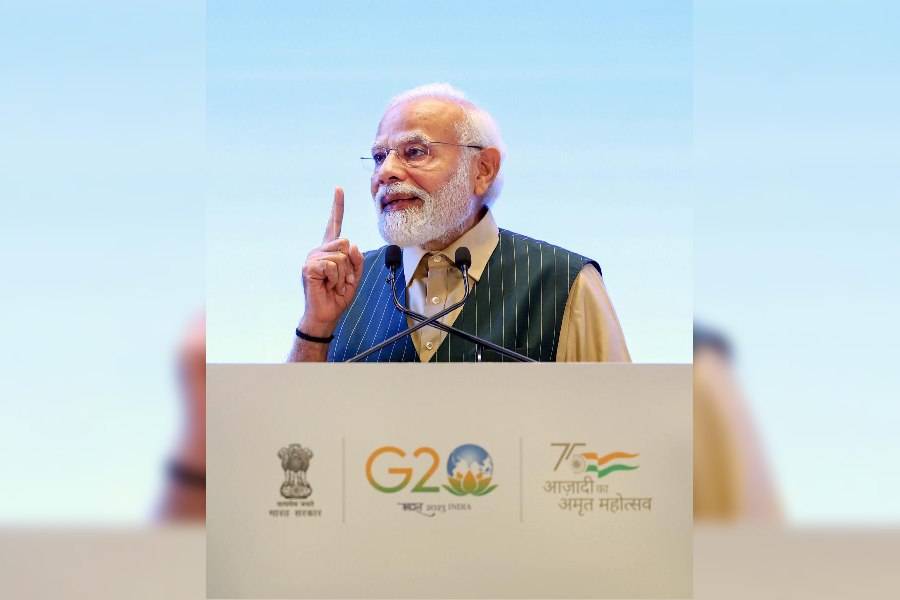Saturday was a holiday in the country for Muharram but universities were asked to ensure that a "large number of students, teachers and staff" could view Prime Minister Narendra Modi's inaugural address at the Akhil Bharatiya Siksha Samagam, and school students were instructed to watch the event at home.
The University Grants Commission, through a circular on July 27, asked universities to enable viewing of the inaugural session through the live webcast and send in by Monday photographs and details of the participation. The Samagam coincides with the third anniversary of the launch of the National Education Policy (NEP).
The UGC, whose mandate is to regulate the quality of university education, also wrote to the states to ensure that their higher education institutions make arrangements for students, teachers and other staff to watch the event.
Vice-chancellors of all universities were asked by the UGC to submit photographs and details of participation by the students and faculty members on its University Activity Monitoring Portal "latest by July 31".
The Kendriya Vidyalaya Sangathan schools asked their students to watch the event at home while the Central Board of Secondary Education (CBSE) asked its schools to carry out a campaign to plant trees to mark the third year of the NEP.
At Jawaharlal Nehru University, an email sent out by the dean of the School of International Studies (SIS) to all its faculty members on Friday said: “It is compulsory to attend the said programme as directed by the Vice Chancellor, JNU.”
A registration link and programme link were sent, with the instruction to "register yourself today only and then join tomorrow at 10 am and send a photo/screenshot of yourself while attending the programme".
The JNU Teachers Association (JNUTA) issued a statement condemning the diktat.
“JNUTA would like to categorically state that this kind of authoritarian functioning by a Dean is unacceptable in the university."
The statement added: “Participation in seminars and conferences is a matter of choice that academics exercise based on their interest and expertise. Coercing faculty members to attend an event through such communication from the Dean is an attack on academic freedom of faculty members.
“JNUTA registers its strong objection to this email, and calls its members to freely exercise their choice based on their interest.”
The vice-chancellor of a central university, who spoke on condition of anonymity, said the screening was organised in the auditorium but participation was minimal, given that Muharram is a gazetted holiday. Many Delhi University colleges did not hold a screening for the same reason.
Several academics said such diktats by the UGC amounted to interference with the autonomy of institutions. Students and staff are mature enough to decide whether or not to participate in any government programme, they added.
Pankaj Garg, a faculty member at Rajdhani College, said it was not a healthy practice that institutions were being persuaded to screen the speeches of the Prime Minister.
“Since the UGC is the funding agency, its circulars are followed by institutions. However, through these diktats, the government is forcing the students and faculty to accept and propagate its activities. The institutions are supposed to critically analyse the activities of the government,” he said.
Another faculty member of DU said that there had been slow progress with respect to the targets set in the NEP 2020. The National Council of Educational Research and Training (NCERT) has not prepared the National Curriculum Framework, the guiding document for writing new textbooks.
The NEP prescribed a four-year undergraduate course and its implementation has started in select universities. But the UGC has not sanctioned new posts for these institutions to take care of the extra workload.
The NEP also suggested that the existing regulating agencies, like the UGC, All India Council for Technical Education and the National Council for Teacher Education, will be merged to create a Higher Education Commission of India. The bill is yet to be drawn up.
At the event, Modi said the NCF would come soon and the entire country would have a uniform syllabus. New books of about 130 various subjects for Classes III to XII will be prepared in 22 different languages.











